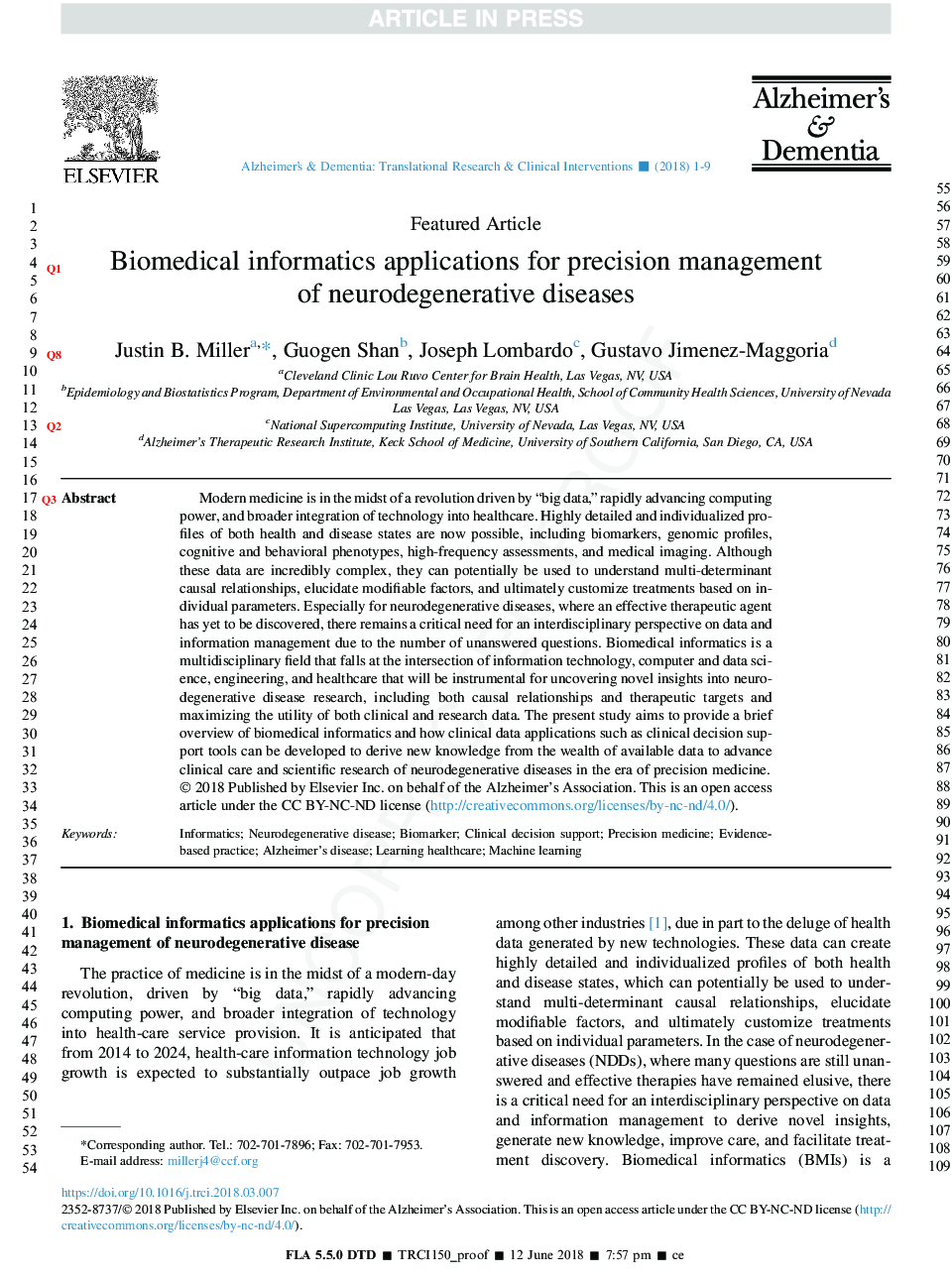| Article ID | Journal | Published Year | Pages | File Type |
|---|---|---|---|---|
| 9987988 | Alzheimer's & Dementia: Translational Research & Clinical Interventions | 2018 | 9 Pages |
Abstract
Modern medicine is in the midst of a revolution driven by “big data,” rapidly advancing computing power, and broader integration of technology into healthcare. Highly detailed and individualized profiles of both health and disease states are now possible, including biomarkers, genomic profiles, cognitive and behavioral phenotypes, high-frequency assessments, and medical imaging. Although these data are incredibly complex, they can potentially be used to understand multi-determinant causal relationships, elucidate modifiable factors, and ultimately customize treatments based on individual parameters. Especially for neurodegenerative diseases, where an effective therapeutic agent has yet to be discovered, there remains a critical need for an interdisciplinary perspective on data and information management due to the number of unanswered questions. Biomedical informatics is a multidisciplinary field that falls at the intersection of information technology, computer and data science, engineering, and healthcare that will be instrumental for uncovering novel insights into neurodegenerative disease research, including both causal relationships and therapeutic targets and maximizing the utility of both clinical and research data. The present study aims to provide a brief overview of biomedical informatics and how clinical data applications such as clinical decision support tools can be developed to derive new knowledge from the wealth of available data to advance clinical care and scientific research of neurodegenerative diseases in the era of precision medicine.
Keywords
Related Topics
Life Sciences
Neuroscience
Neurology
Authors
Justin B. Miller, Guogen Shan, Joseph Lombardo, Gustavo Jimenez-Maggoria,
